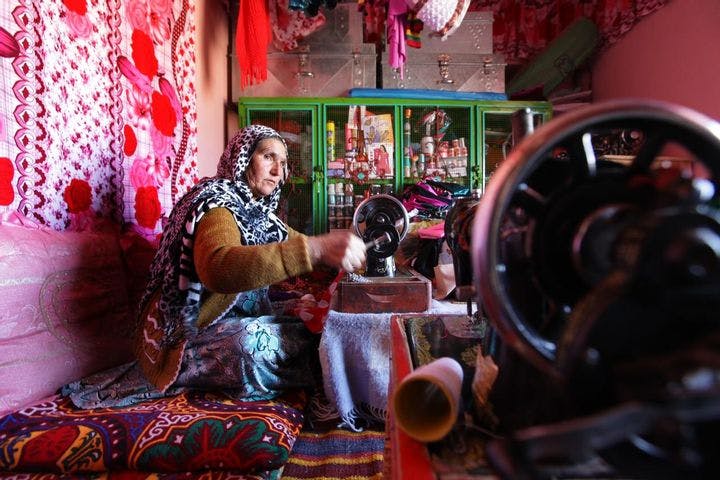A Return to the Dark
– Christina Lamb
As Western troops prepare to leave Afghanistan, many women say that progress is already going backwards. These are their stories.
WHEN A SHEPHERD’S DAUGHTER from northern Afghanistan succeeded in sending the four policemen who had gang-raped her to jail, it seemed to be a turning point for Afghan women.
In May 2012, 21-year-old Lal Bibi from Kunduz was repeatedly raped for five days by local policemen. One of them had had a dispute with her cousin, and Lal Bibi was the object of their revenge.
Such stories, sadly common in Afghanistan, usually end there — with the girl shamed, unmarriageable, and perhaps outcast in a shelter, while the perpetrators go free — for this is a society where men with guns have power.
Lal Bibi ended up in a shelter, broken and unable to speak. But her family stood up for her, particularly her grandfather. In the shelter she met Mary Akrami, an activist who runs the Afghan Women’s Skills Development Center and was one of the first women in Afghanistan to set up shelters for battered women and girls. Backed by her tribe and helped by Akrami, Lal Bibi and her family bravely went to court in Kabul. In November 2012, they succeeded in getting her rapists convicted — a court decision hailed by human rights groups worldwide. If only the story had ended there.
As the judge announced the 16-year sentence, the convicted police commander pointed at the family and shouted, “I’ll be free one day, and I’ll deal with you people!”
The family was scared and remained in Kabul, sheltered by Akrami. Then in early 2014, Lal Bibi’s grandfather died, so they returned to their village. Within hours, her father was arrested by the police commander’s men, and falsely accused of killing someone. He remains in jail, and Lal Bibi and her family have been forced to go back in hiding.
Akrami receives threats every day. She has had two miscarriages because of the stress. Her husband has pleaded with her to stay at home, but she refuses to give up.
“We are the only ones to stand up to these powerful people,” she says. “We can’t give in.”
Many women are terrified of what will happen when NATO troops leave. They already see the darkness returning.
It’s easy to forget now, but western leaders often cited repression of Afghan women as a key reason for toppling the Taliban regime after 9/11. In his January 2002 State of the Union speech, after the fall of the Taliban, President George W. Bush declared: “The last time we met in this chamber, the mothers and daughters of Afghanistan were captives in their own homes, forbidden from working or going to school. Today, women are free.”
Akrami is the first to say that things have improved enormously for women compared to life under the Taliban. Then, women could not work, go to the bazaar, wear white shoes, or laugh out loud. They could be beaten or jailed for wearing nail polish or lipstick, and the shapeless blue burqa that they were forced to wear became synonymous with women’s repression. Girls were not allowed to go to school.
“Then, women couldn’t go out of house,” says Akrami. “Now, they’re going to court. But as Lal Bibi’s case shows, society is not ready.”
Activists like Akrami fear that Western commitment to the freedom of Afghan women is being forgotten in the rush to get out of Afghanistan. They are terrified of what will happen to women when NATO troops leave at the end of this year.
There were no women among the eight candidates in Afghanistan’s April presidential elections, and just one — Dr. Habiba Sarobi, former governor of Bamiyan — on any of the slates (as second vice president). There were, however, two warlords running for president (and four as running mates) who are known for trampling on women’s rights.
“When you go from darkness to light you have to pass through shade,” says Sarobi. Yet many women say that things are already going backward, into the dark.
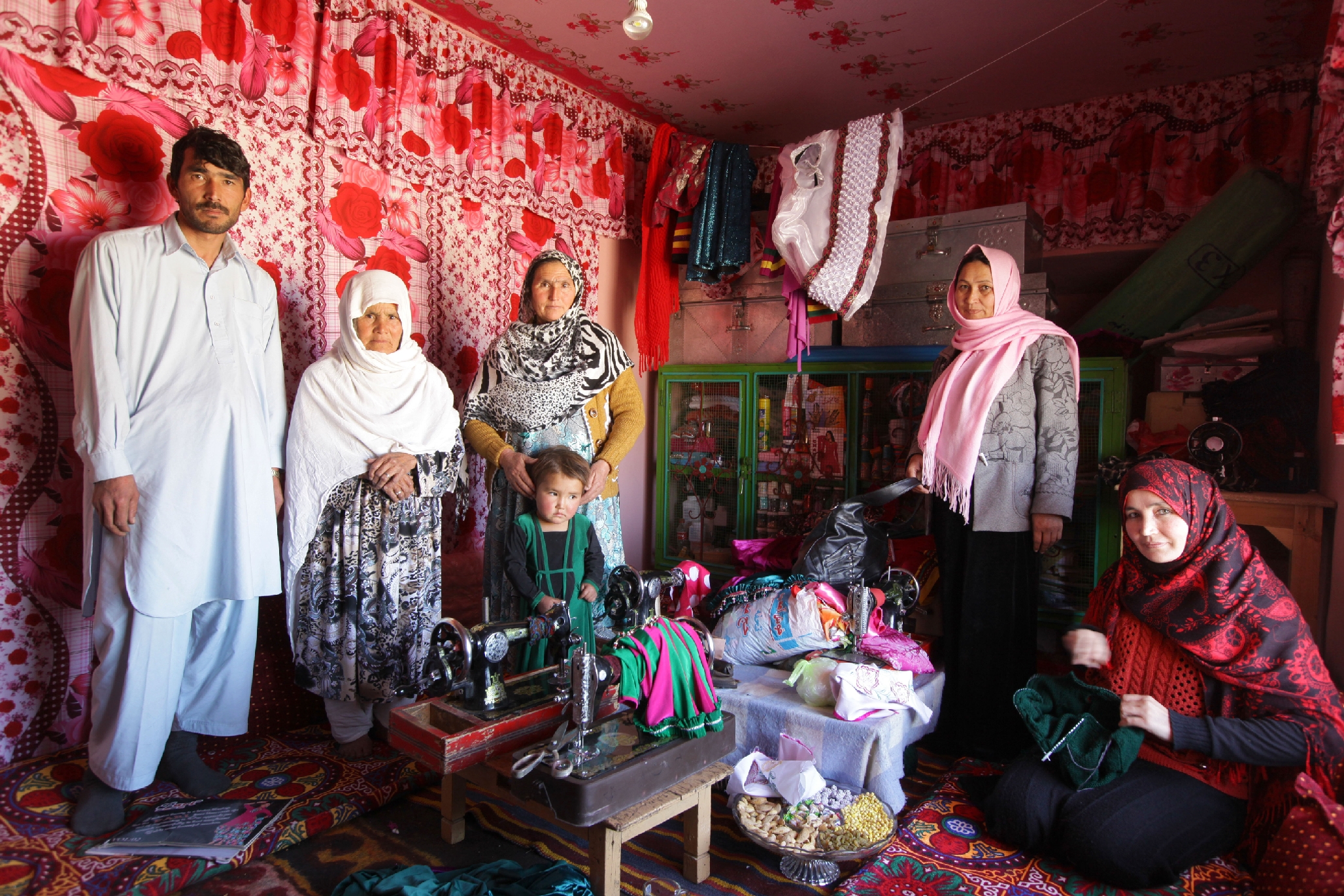
AS SOMEONE WHO HAS GONE BACK AND FORTH reporting on Afghanistan throughout the twelve-and-a-half years since the Taliban were toppled, I have seen the situation of women visibly improve.
In the ancient city of Herat, the day after the Taliban fell there in November 2001, I came across a group of courageous female writers and poets who had met secretly under the guise of a sewing circle throughout the Taliban years. Though they arrived for meetings with fabric and scissors, they never made a single garment. Instead, led by a literature professor at the university, they discussed Shakespeare and Virginia Woolf as well as their own work. I was astonished that they had risked their lives to be able to write.
They also ran secret classes for girls. Today, it is a common sight to see lines of schoolgirls on their way to lessons, book bags proudly in hand. Of the estimated 8 million Afghan children in school, 2.4 million are girls. The number of students going into higher education has increased from just 4,000 in 2004 to more than 120,000 in 2012, and about a quarter of these are girls.
In cities like Herat and Kabul there are women drivers — admittedly only a handful. Afghanistan even has female rappers, though one of them, Remika Khabiri, says she has to hide her face or she gets abuse spat at her, even by fellow students at Kabul University.
Even in the remotest villages, life has changed for women. Microfinance loans for projects like dressmaking or beekeeping have turned illiterate women who had never worked outside the home into entrepreneurs earning more than their husbands.
This February, I travelled north to Samangan, one of Afghanistan’s poorest provinces. The area is so arid that the mud-houses blend into the mountains; the province is dotted with ghost villages, completely abandoned as people fled war and poverty.
There, in a village called Asiabad, I met an amazing woman named Kubra. Her house stood out because of the two white-and-yellow taxis standing outside along with a cow.
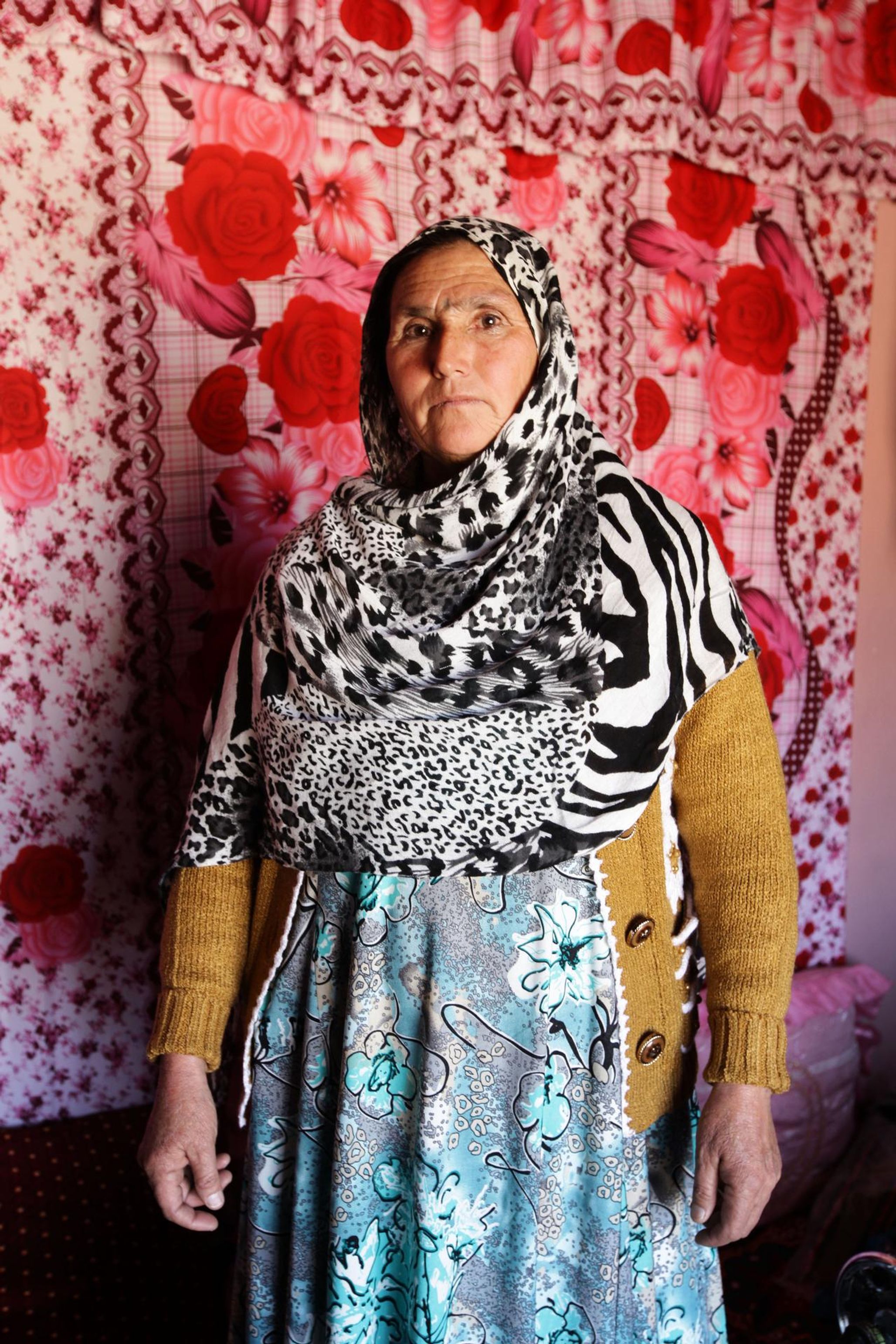
Like most Afghan village women, Kubra looks much older than the 50 years she claims. Her skin might be wrinkled and weather-beaten, but she is like a human dynamo — her hands waving back and forth like windmills and her black button eyes flashing as she leads the way into a pink treasure palace of a room full of ribbons and sequins and old-fashioned Chinese sewing machines.
“Nine years ago, I was a very poor simple woman,” she says. “I’d been married off at 13, as my parents could not afford to feed me. Then I had 11 children, as I didn’t know any different, and my husband worked in the fields growing wheat. You can see nothing grows, so there were many days when we had no food or just one meal.”
Then Kubra’s village was visited by Afghan Aid, a British charity that has worked in Afghanistan for 30 years. Aid workers suggested that the women learn tailoring and lent Kubra 80,000 afghanis ($1,400) to buy machines and material and trained her on their use. “I worked day and night so I could buy another,” Kubra says. She passed her skills on to others, and now she has 16 village women sewing, taking orders for weddings and selling their work in nearby villages. “Now my income is more than my husband’s!” She smiles broadly, showing gold teeth.
The economic empowerment has had other effects. “Before, I couldn’t even go to the bazaar on my own,” Kubra says. “No female was allowed to sit with men. Now our men have accepted that women can go outside. Now my daughters go to school, and one even has a job registering the voters for election.”
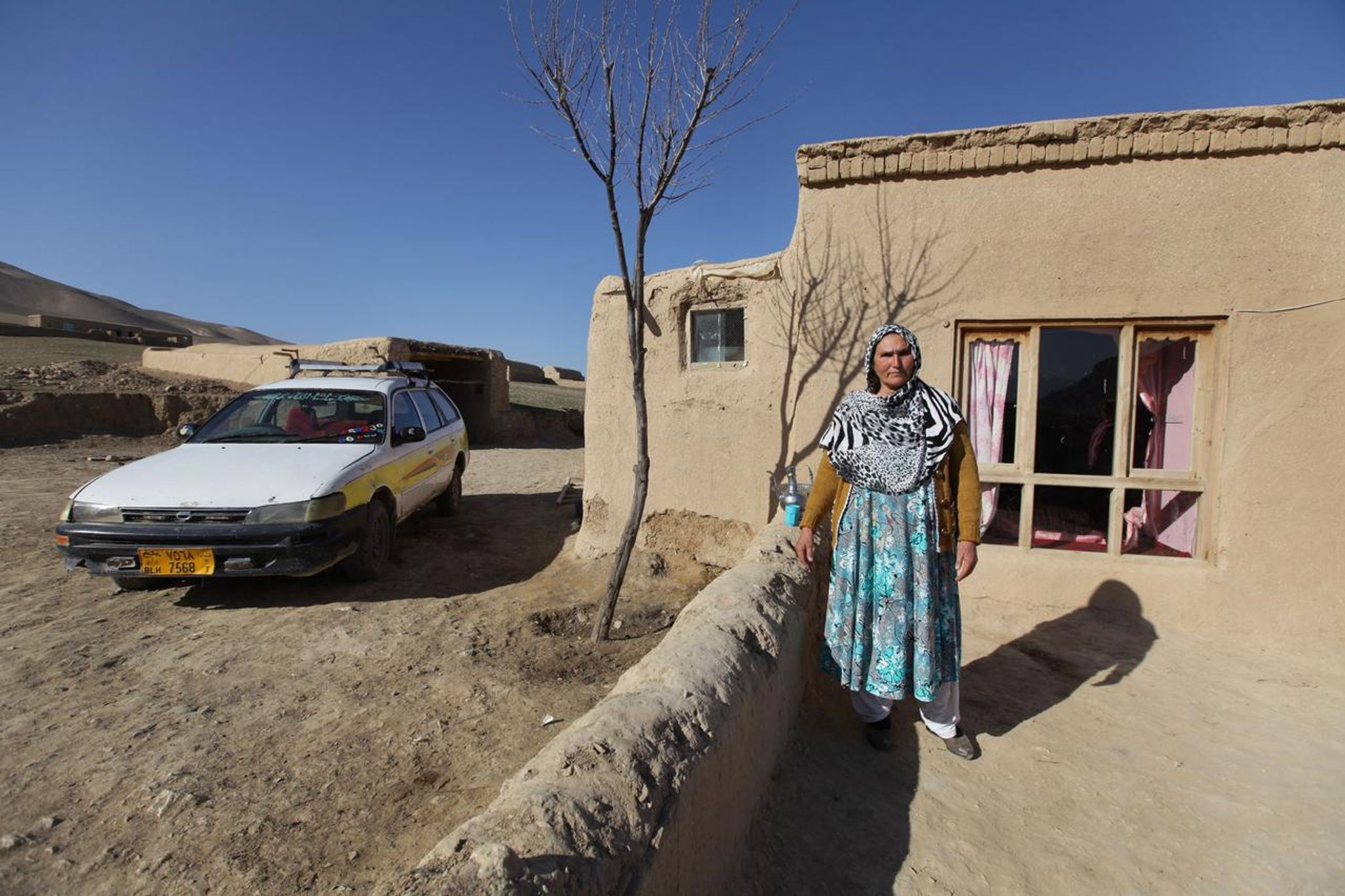
With their new income, the women formed a savings group and used the money to set up a small convenience store from which they divide profits. Kubra also purchased a cow, which provides milk for curds, and with the money from the cow’s produce, she bought a car for the sewing group — which doubles as a taxi driven by her son. Recently, she added another taxi. “I am slowly moving up the ladder,” she says, laughing as she mimics climbing the rungs with her fingers.
Kubra also administers vaccines for the community against tuberculosis and polio — skills she learned by watching a video. “I’m illiterate, but am good at fixing things in my head.”
The village will soon have electricity, and Kubra has already bought an electric sewing machine.
When Kubra and her fellow women sit and sew, their main topic of conversation is what will happen when the NATO troops leave. Having tasted independence, she says, there is no way they will relinquish it.
“If the Taliban tried to come back now, although we don’t have weapons, we have power and we would resist.”
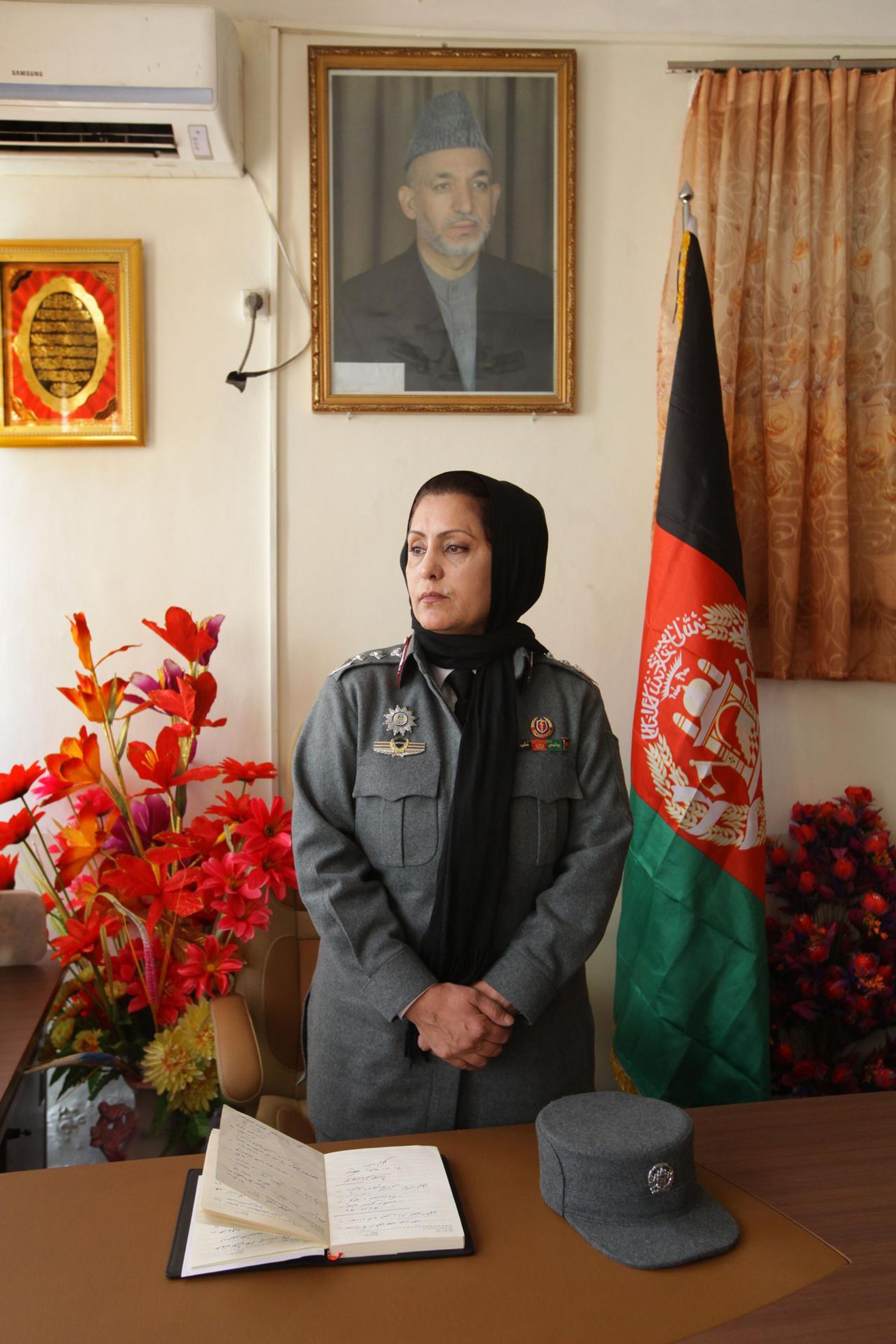
AFGHANISTAN’S CHANGES go to the highest levels. Women hold three cabinet-level posts, a quarter of seats in parliament (the U.S. Congress, by contrast, is only 18 percent female), and there is one female provincial governor.
At the start of 2014, more history was made: the appointment of Afghanistan’s first female police chief. Colonel Jamila Bayaz now heads the station in the Mandayi bazaar right in the teeming heart of Kabul. Amid wooden stalls selling combs, belts, and Justin Bieber posters, Col. Bayaz commands about 400 police in a region that she thinks has 500,000 inhabitants until her deputy corrects her — it’s 1.5 million.
“This is a chance not just for me, but for all women of Afghanistan,” she says, sitting in her upstairs office, surrounded by plastic flowers and trays of almonds and pistachios, as a stream of friends comes to congratulate her.
The 50-year-old mother of five says that she always dreamed of following in her father’s footsteps and becoming a police officer; “I saw it as a way to help people, and I loved the uniform!” she laughs.
In her black headscarf and gray uniform with silver and red epaulets, Bayaz cuts an impressive figure. As she carries out her weekly inspection of Kabul’s District One police, it’s a stark contrast to her male subordinates — an unruly sight clad in a mishmash of uniforms, leather jackets, torn anoraks, and assorted headgear.
Back in her office, Col. Bayaz answers phones, signs papers, and briefs staff as her 12-year-old son sits on the sofa looking bored. “He refused to go to school, as he complains he never sees me at home,” she said. “I work 24 hours a day.”
Bayaz first trained during the Soviet occupation, working as a police officer until Taliban fighters invaded the capital. September 26, 1996, is a day she says she’ll never forget. “When I walked home, I changed from a police officer to an ordinary woman,” she says. “The Taliban stopped everything. It was as if they had stopped life itself.”
Twice she was beaten: once for showing an ankle and another time for taking off her burqa before she entered her house, unaware anyone was watching.
After the Taliban left, she went back to the police force, receiving new training from American, British, and Norwegian experts. The job took her to Colorado, Miami, New York, Dubai, Cairo — even Siberia. “It was all very different to policing here,” she says.
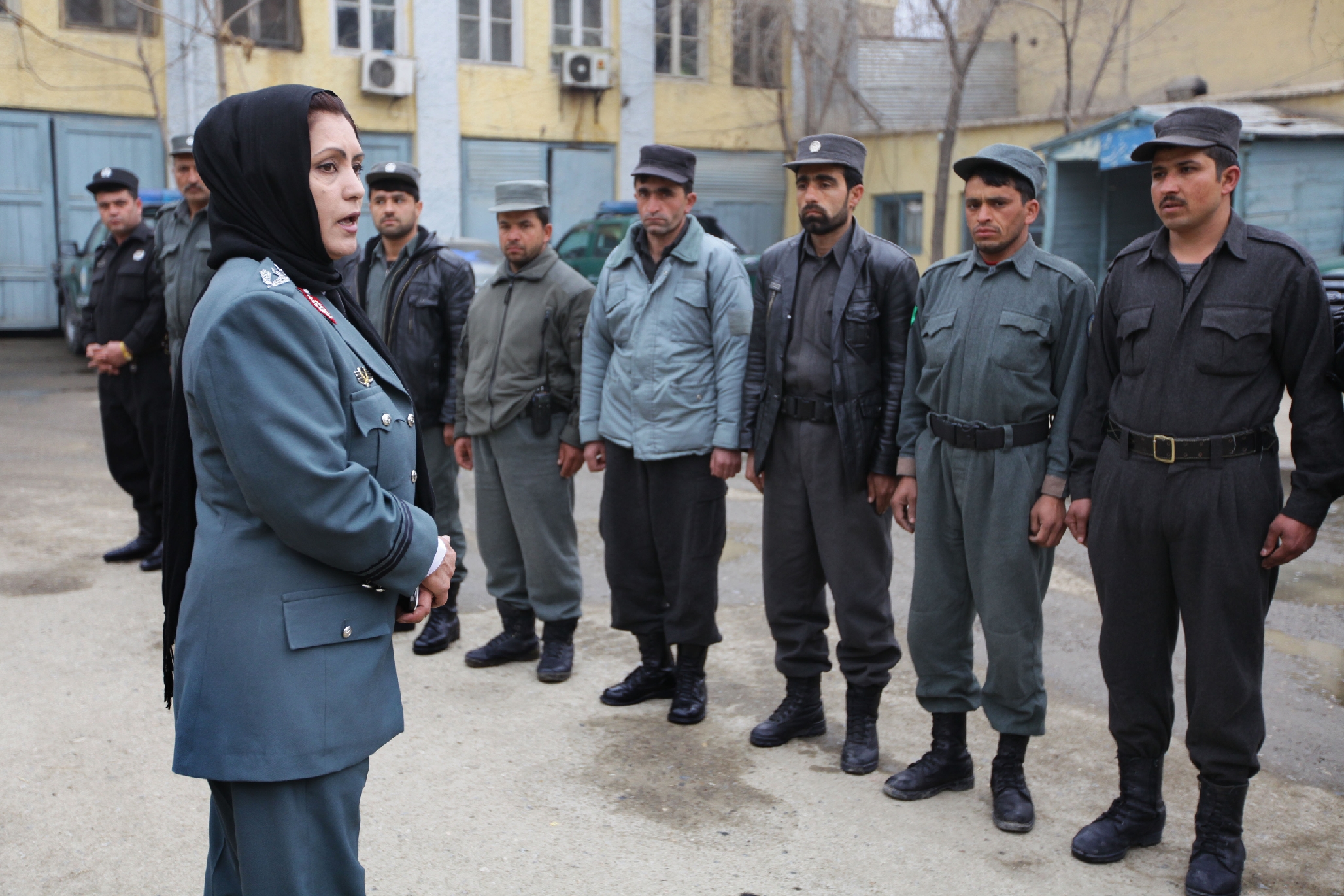
Bayaz describes her promotion as a “victory for all women of Afghanistan.” She would not be drawn on the fact that in Helmand province, two fellow female police officers were recently assassinated.
“What we’re seeing in Afghanistan today is two opposite faces,” explains Hassina Safi, executive director of the Afghan Women’s Network. “On one side, we’re seeing promotion of women like Jamila to key positions as a result of our advocacy over the last years — and at the same time, there is no security for women, and we’re seeing the systematic killing of women working outside, especially in police and defense.”
“People need to realize the gains we have made are fragile and we still need help,” Safi adds.
A few miles away from Bayaz’s police station is the Kabul stadium where the Taliban publicly lashed women. A cavernous room inside the stadium is host to an unexpected scene: a dozen female boxers sparring and aiming punches, laughing and teasing as their trainer barks instructions.
They’re hoping to qualify for the next Olympics. Once, there were 25 of them, and each received $100 per month in allowance as well as transport provided by international aid.
“I believed women’s rights were a global issue and thought we had women from all the world behind us, but now I see we’re alone.”
The aid money has dried up. All they have now are their boxing gloves and a room to train in. More than half of the original participants have dropped out.
As the outside world loses interest in Afghanistan, says Mary Akrami, the Afghan women’s groups once feted by Western donors are all now seeing their funding collapse. “I believed women’s rights were a global issue and thought we had women from all the world behind us, but now I see we’re alone.”
Brave women activists are dreading the departure of foreign troops at the end of 2014.
“We will be the first target,” says Akrami. “If, God forbid, something happens during the transition, we’re the ones on the front line.”
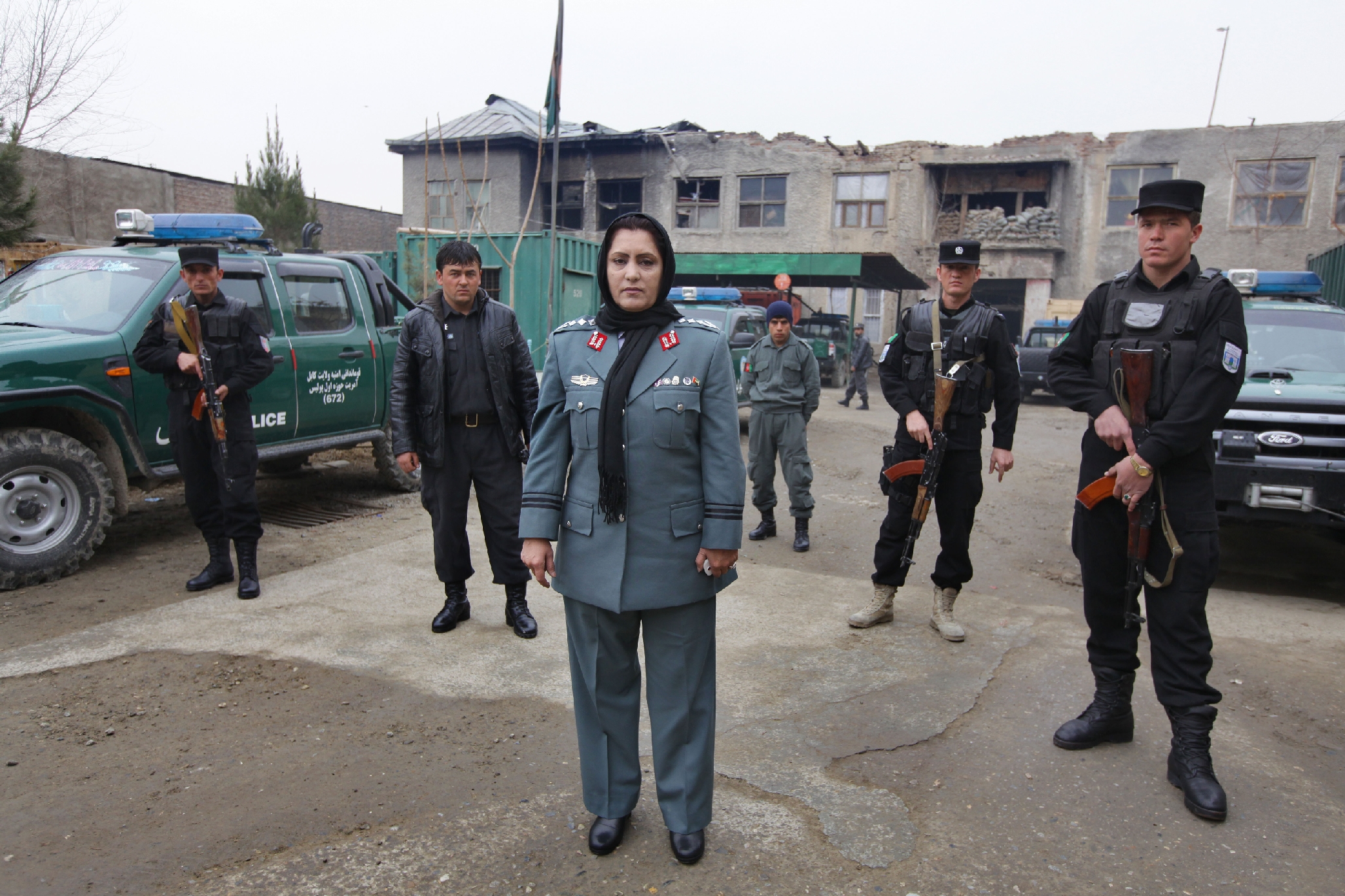
ALREADY, THERE ARE SIGNS OF PROGRESS SLIPPING AWAY.
The Afghan parliament recently reduced the percentage of seats reserved for women from a quarter to a fifth; those women MPs say they have no power anyway.
Habiba Danish was a teacher in the northern province of Takhar who was forcibly married to a local police commander at age 17. She joined parliament in 2005 to try and help other women. Instead, she finds that the courts will not listen to her, and she receives constant threats to the life of her 12-year-old son, whom she raised as a single mother after the commander was killed.
“The situation for women is very bad, even for women like me in positions of power,” Danish says. “In the past, the men running the country had long beards. Now they are short, but the mindset is the same. Every day they call, saying, ‘We will kill or kidnap your son.’”
In August 2013, one of Danish’s colleagues, female senator Rooh Gul, was shot as she traveled through Ghazni Province. Gul survived, but her 8-year-old daughter was killed.
Danish is terrified that the situation will deteriorate further as foreign troops leave. “Oh my God, it will be very bad,” she says. “Right now, with the international presence, our commanders and government are afraid to go too far, but when they go, these people won’t be afraid of anything. If all the troops leave, I will try to go, too.”
One of Danish’s fellow MPs, Noorzia Atmar, traveled the world as a symbol of women’s rights, but back home her own husband was beating her. She ended up in a shelter, and recently fled the country.
“If all the troops leave, I will try to go, too,” says one female member of parliament.
Danish, Atmar, Akrami, and Safi were in the vanguard of an attempt to get parliament to pass a law criminalizing violence against women. They ran campaigns across the country, and received endorsements from clerics in other Muslim countries, like Egypt.
Not only did their efforts fail, but the Afghan parliament instead approved a new criminal code that banned relatives of a criminal defendant from testifying against them. Given that most violence against women in Afghanistan is at the hands of husbands or in-laws, the change would effectively silence victims and make it impossible to prosecute abusive spouses or parents who force children into early marriages.
The change provoked international outrage, and ultimately Afghan president Hamid Karzai did not sign the new code. But its near-approval showed how precarious the changes for women are.
One woman who discovered this the hard way is Shafiqa, an illiterate farmer’s wife from Dewari village in Takhar. She has given up all she has to seek justice after her daughter Zainora was abducted and brutally murdered three years ago.
Shafiqa looks at least 20 years older than the 40 years she says she is. She sobs and wipes her eyes on her leopard-print scarf as she tells her story, scattering photos of her daughter and sheaves of court documents that she cannot read.
“We are poor people; my husband grows tomatoes and potatoes,” she says. “Zainora was like a jewel — the most beautiful girl in the village.” One day when Zainora was 18, she simply disappeared during lunch time. After 10 days, her family discovered that she was abducted by a military commander and his friend Basir, the nephew of Qazi Kabeer, a powerful conservative MP.
Shafiqa’s husband, Haji Zada, went to the MP and begged for his daughter back. When Zainora finally appeared, she said that five men kidnapped her, forced her to smoke hashish and dance, and repeatedly gang-raped her. “Father,” said Zainora, “the shame will be really bad.”
“Qazi Kabeer realized it would be very bad for his reputation if people found out, so he told us that his nephew would marry Zainora and gave us 50,000 afghanis [about $880],” says Shafiqa. “My husband told him my daughter also needs a house, land, and gold. Qazi Kabeer said ‘I will give her those things; you should be proud your daughter is marrying a rich man.’”
She said that five men kidnapped and repeatedly gang-raped her. “Father, the shame will be really bad.”
In fact, it was just a ruse. After the marriage, Zainora found that she was pregnant and went home to stay with her parents. Three months later, her husband Basir came late one night with his men and said that he was taking Zainora back in hopes that she could look after family guests while his mother was in India.
“She was happy,” says Shafiqa. The next time she saw her daughter was in the back of a police van, covered with blood. The men had tossed her out of the car onto a hillside and fired 33 bullets at her. “When I saw my daughter’s body, I wanted the person who did that to hang.”
Shafiqa decided to go to the provincial governor and local courts. “The judge in Takhar asked for 120,000 afghanis [about $2,100] to proceed with the case. He told me to bring a box of grapes as a gift and put the money inside.”
Instead, she took a bus to Kabul for the first time in her life. She found her way to Tolo TV and told her story. President Karzai saw the interview, and his office told her that Karzai would look after her. “They put me in a government guesthouse, but after a month, nothing had happened.”
Shafiqa received a call informing her that her younger daughter Shazia, age 15, had been abducted. Shazia’s kidnapper, a police commander who was a cousin of Qazi Kabeer, made her dance and gave her alcohol and hashish. “When your family stop all these complaints,” Shazia was told, “we’ll release you.”
After 33 days, Shafiqa found out where her younger daughter was. “My husband and son were really scared and didn’t want to go, so I went with another woman.” They found her in a basement. “My daughter was sick and in a very bad state,” Shafiqa says. “No one will marry her now.”
When they returned home, villagers went out and protested against Qazi Kabeer saying; “You did this to these poor people; next time, you will do it to us.”
That wasn’t the end. Shafiqa’s son was picked up and put in jail — falsely accused, Shafiqa says, of kidnapping people. Their house was set on fire, although people from the village helped put out the flames before the house was destroyed.
“Qazi Kabeer told me, ‘You gave me a bad name, so I will do whatever I can against you,’” says Shafiqa. She has sold all that her family once owned to try and get the case heard and her son freed. “I am afraid of God, but not Qazi Kabeer,” Shafiqa says. “But it seems President Karzai and everyone else is.”
Qazi Kabeer claims that Shafiqa and her husband killed their own daughter and are just trying to get money.
HEARING SUCH STORIES, and visiting shelters full of girls who have fled forced marriages, it is easy to become despondent about Afghanistan. There are certainly enough grim stories to make anyone despair for the future. But telling those stories is important: as long as they are told, then there is at least the possibility of bearing witness to the long struggle of Afghan women for better lives, a more equal society, and a better country.
One of the brave poets I met in Herat, Nadia Anjuman, was killed by her own husband because he did not want her writing about women’s issues.
Her grave is now a shrine to local women; but it is also a reminder to the outside world of promises once made, promises that the West must not forget.
* * *
Christina Lamb is the author of The Sewing Circles of Herat: My Afghan Years and I am Malala with Malala Yousafzai. She is a Global Fellow at the Wilson Center.
Photos by Polaris/Justin Sutcliffe
